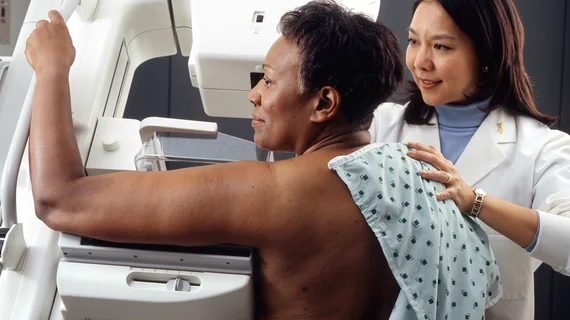Breast cancer screening guideline from Canadian group emphasizes shared decision-making
The Canadian Task Force on Preventive Health Care has issued updated breast cancer screening recommendations for women ages 40 to 74 who are not at an elevated risk, publishing them in the Canadian Medical Association Journal. The new guideline emphasizes the importance of women making screening decisions with their healthcare providers.
According to the recommendations, women aged 40 to 49 should not seek screening.
“The recommendation is conditional on the relative value a woman places on possible benefits and harms from screening,” according to a prepared statement. “In situations where women of this age wish to be screened, they are encouraged to discuss options with their health care provider.”
Women aged 50 to 74, according to the new recommendations, should be screened every two to three years. And the task force recommended against breast cancer screening using MRI, digital breast tomosynthesis and ultrasound “based on a lack of evidence.”
“The guideline reflects the growing importance of shared decision-making between patients and physicians in preventive health screening, especially in situations like this where the balance between potential benefits and harms is not certain,” Donna Reynolds, MD, a member of the task force, said in the same prepared statement. “This has led to conditional screening recommendations that emphasize that women should be supported to make the decision that is most consistent with their own priorities regarding possible screening outcomes.”
Overall, this guideline is similar to recommendations made in the United States by the U.S. Preventive Services Task Force (USPSTF). Numerous organizations, including the American College of Radiology and Society of Breast Imaging, made statements against the USPSTF recommendations when they were finalized.

